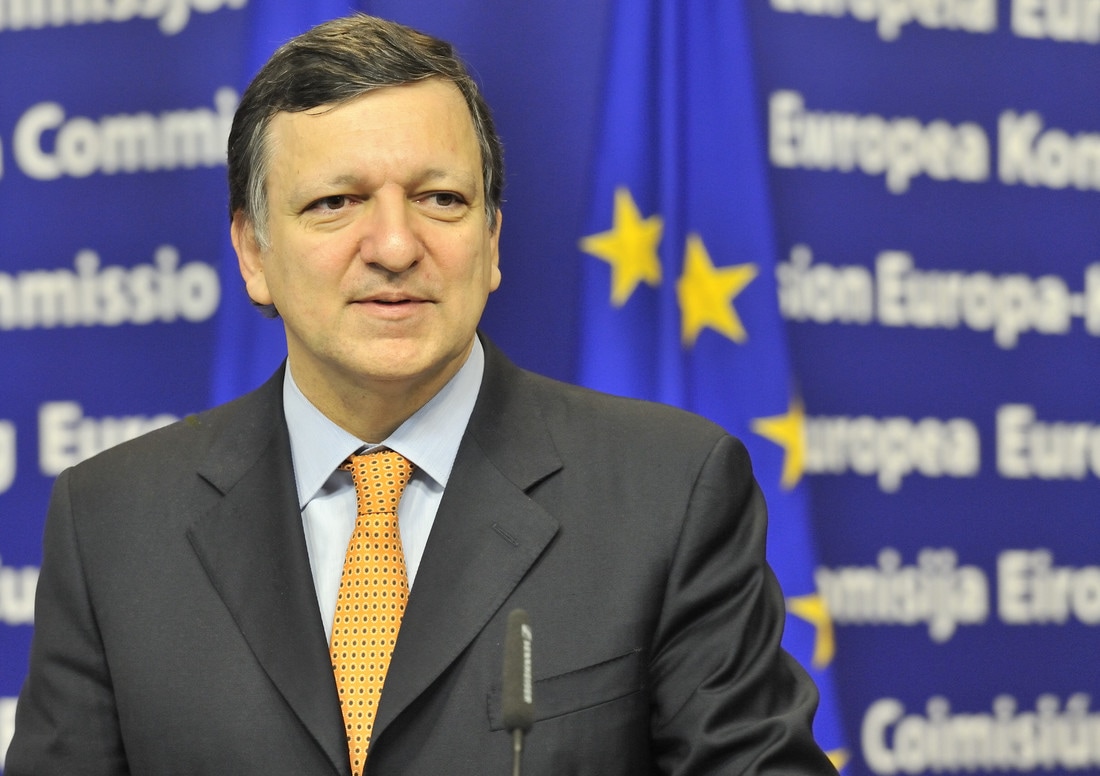|
Jose Manuel Barroso, former Prime Minister of Portugal and President of the European Commission who accepted the Nobel Peace Prize in 2012 on behalf of the EU, recently came to the secondary school I work at to give a talk on peace.
In a follow up discussion between my students and him, we reached a point at which he described himself as an optimist who fully acknowledges that the history of human progress is not linear and that we may well be in a downward movement at the moment, citing the various nationalist and populist uprisings over the past couple of years. This was no reason to despair according to him and I agree in principle, although it’s hard to imagine just how worried we ought to be. Progress may continue in the long-run, but that’s no consolation for those of us making due in the meanwhile. The central thrust of his argument was to point out the many historical obstacles that have been overcome in the liberation of various groups of people. He cited the overcoming of slavery, then colonialism, and the ongoing improvements in non-discrimination based on aspects like gender, sexual orientation, etc. When asked what he believed would be the next obstacles to overcome in the upward trend of progress, he stated that absolute poverty and inequality will most likely be two aspects of societies and the world that we look back on and view as morally unacceptable in the same sense as the ones mentioned above. I agree, however, poverty and inequality are qualitatively different than the previous items listed. Slavery, colonialism, and non-discrimination can be viewed as very clear rights in the traditional sense. We simply agree and enforce the practice of not doing or participating in them. Do not enslave, colonize, or discriminate. Non-action is a simple mandate in principle once agreed upon. Poverty and inequality do not follow this same logic. The current GDP per capita at purchasing power parity globally is roughly that of China - approximately $12,500. That is clearly enough to end absolute poverty (roughly $2 per day or about $730 per year) worldwide if we agreed to share all of the world’s wealth equally and perhaps that is the most moral action to take, but that is clearly different in nature than simply agreeing not to do something. It entails doing something, namely giving money and resources. While I do believe that absolute poverty should be felt as morally unacceptable for anyone living in a rich nation, it is not immediately obvious that inequality should currently be seen as morally unacceptable. I don’t believe anyone would be truly happy with $12,500 per year indefinitely. If that assumption is correct, economic growth should be given a higher value than adjusting inequality in the short-run. Psychology has found that life satisfaction nearly plateaus somewhere between $50,000 and $75,000, depending on the study you are reading. On a slightly different measurement of well-being, hedonic pleasure can almost always be experienced without any plateau onset by spending more money. Here it is best to contrast life-satisfaction with hedonic pleasure by thinking of an example. We could purchase a nice vacation and engage in all sorts of hedonically pleasurable activities and experiences while on it and yet not actually increase our life-satisfaction when we step back and reflect upon our lives. Putting those two findings together, money is clearly important and more of it is needed if we wish to maximize pleasure, satisfaction, and overall well-being. Of course, I am not the first person to say this. It is one of the main arguments in support of Tyler Cowen’s premise that we should secure minimum rights (of the traditional sense) and then go ahead with whatever policies maximize growth (of a sustainable sort). This entails prioritizing economic growth as quickly as possible up to at least the level of $75,000 GDP per capita at purchasing power parity globally. Until then, inequality (at whatever level we eventually deem acceptable) should wait its turn as a preeminent value. This view is premised on the fact that full rights for all will not alone make us happy. Better off, yes. Maximally happy, no. I may have every right available, but I would not be satisfied with the life opportunities available at $12,500 per year. That is a life with very few of best things in life - travel, food, novel experiences, high quality education, healthcare, and of course, leisure time to spend with close friends and loved ones.
0 Comments
Leave a Reply. |
Archives
November 2017
|

 RSS Feed
RSS Feed